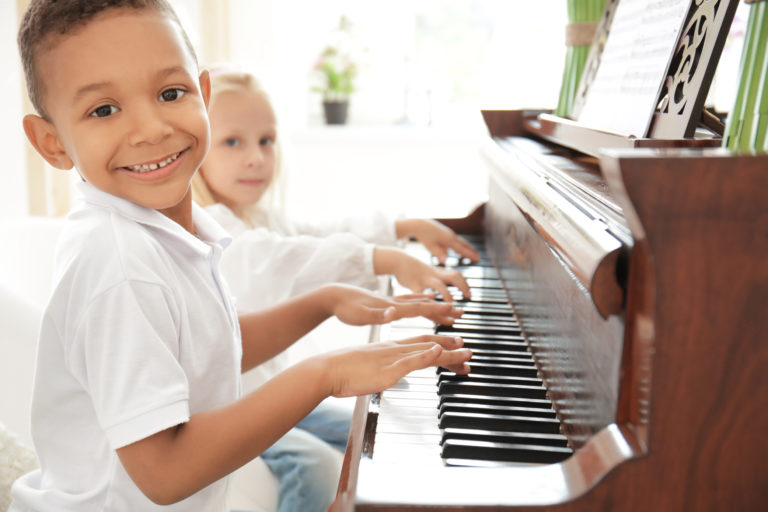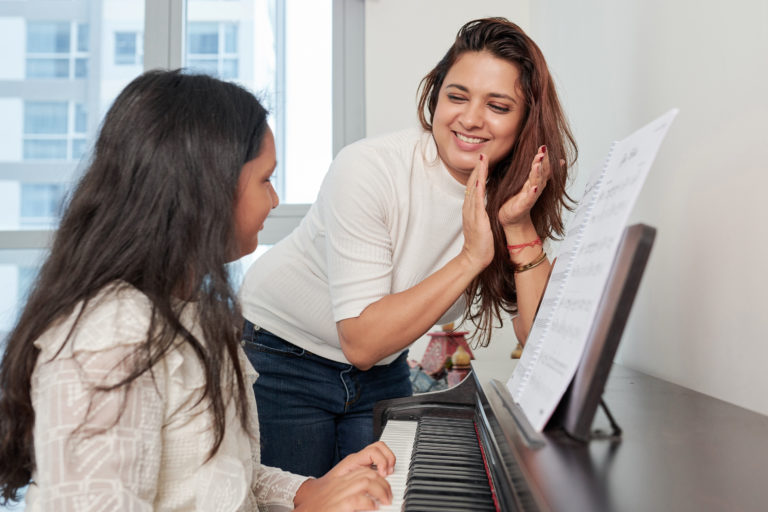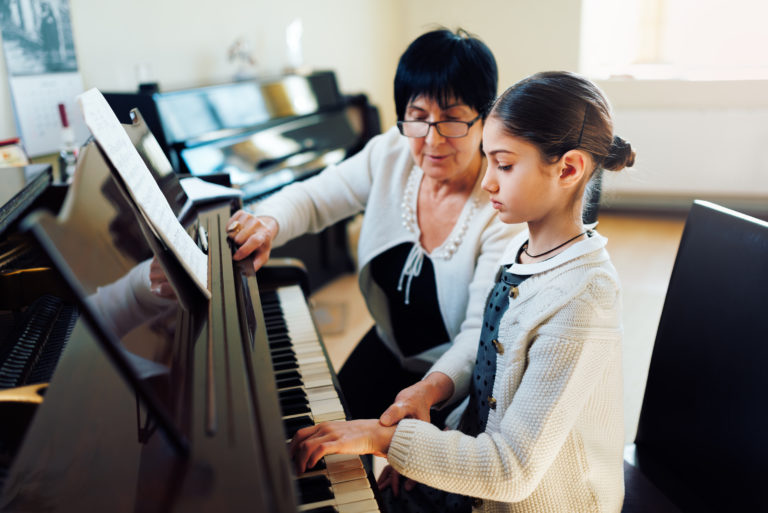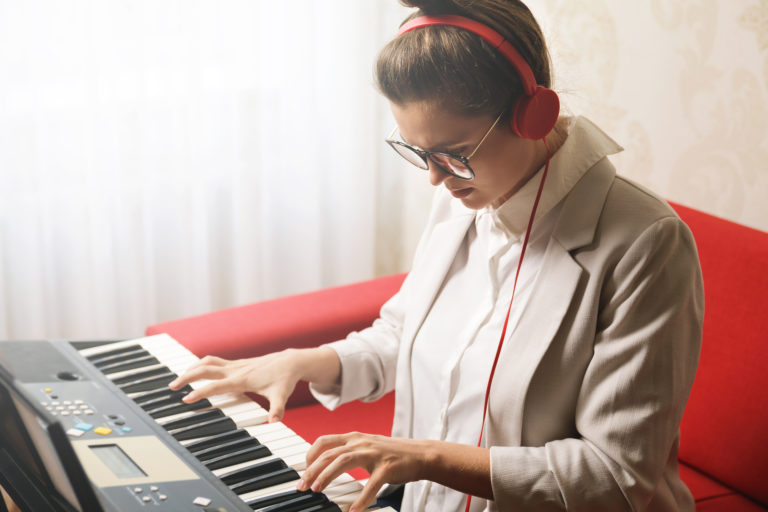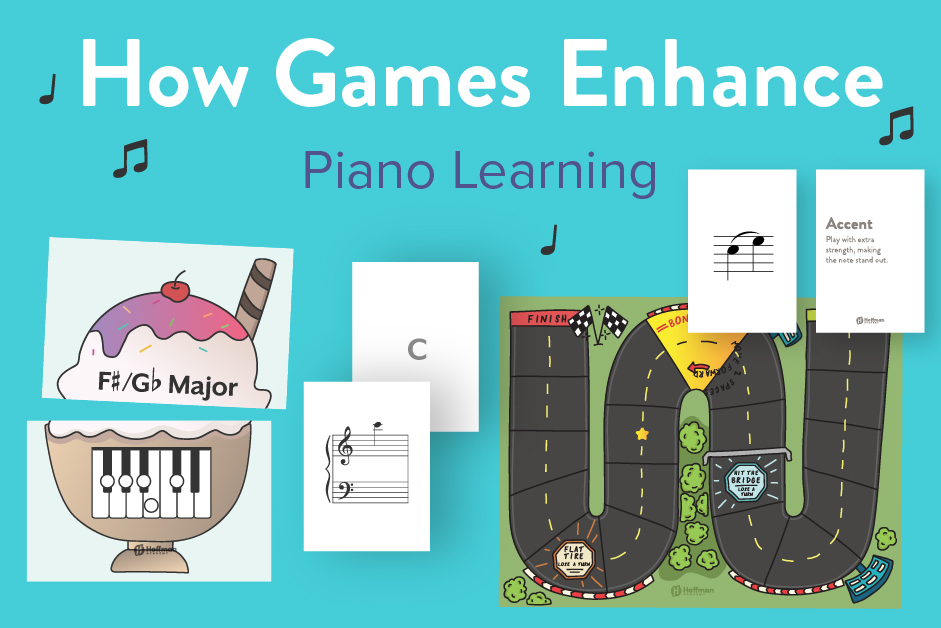Introducing games into your child’s piano learning routine can be a real game changer! Not only do games add an element of enjoyment to practice sessions, they serve as powerful tools to reinforce musical concepts, improve concentration, and foster a deep love of playing the piano. In this article we’ll explore the many ways that incorporating games can enhance your child’s piano journey.
Is it hard to learn piano?
Learning the piano is certainly challenging, but most people find it very rewarding too! Whether it feels “hard” or not can depend on many factors. Working hard at something can feel good and give you a sense of accomplishment. On the other hand, sometimes a task feels hard because it’s boring or unpleasant. Piano students who find piano practice hard, boring, and unpleasant every day will eventually want to quit. Incorporating games into piano practice can turn things around and make it fun and enjoyable instead!
Piano practice games are great for taking small steps to improve specific piano skills. No matter what you’re learning, you will often come to a place where it feels like you’re not making any progress, and the challenges seem too great to overcome. When that happens, breaking goals down into smaller, achievable steps can be a big help. One thing that piano practice games are great at doing is focusing on these small steps. A good piano practice game targets one skill at a time. Succeeding at a simple piano practice game creates both a sense of accomplishment and fun, and can put a new spark of enthusiasm in your child’s music learning.
Why games are an important aspect of learning
One of the biggest obstacles to learning is the fear of making mistakes. When fear is in charge, we wind up not wanting to try anything new because we might fail. This stops us from being able to take even the first steps of learning.
Turning a challenge into a game can take fear out of the equation. Making a mistake becomes just another part of the game. In a game, winning every time isn’t expected. What’s the fun in that? In a game, if you don’t win this time, there’s always another chance to try again.
Games open up the creative processes in our brains and encourage us to keep trying and find new ways to do things. Games make us believe that there is a solution, and that we can find it! Games create the opportunity for us to test out new solutions in a safe environment.
At the fundamental level, learning music IS about problem solving and innovation, skills that are vastly more important in our modern world than simply memorizing and recalling facts. Games help us tap into those valuable skills.
How games help with retention and understanding
We’ve already talked about how games help eliminate a fear of failure. When the fear goes away, it’s easier to learn and remember. Mistakes become an opportunity to try something different. A game also helps motivate us to keep trying until we get it right.
By turning a challenge into a game where it’s okay to try and fail over and over, we come to understand why certain rules are used. For example, why should we use a specific fingering to play a passage of music? Because that’s the best way to play the passage effectively. In a game, a student could try different fingerings and find out for themselves which one works best.
How games help with piano learning practice
Piano practice involves a certain amount of repetition. Sometimes young children (and adults too) can get bored when doing the same thing over and over. Adding a simple game to the equation can liven things up and keep interest high. The game creates motivation to repeat the task over and over until it’s solid in their memory.
Imagine giving a child a video game controller and telling them they have to spend hours learning to quickly press a very specific and complex sequence of buttons, but there’s no game involved. Most children wouldn’t do it. However, if there’s a game, they’ll spend hours perfecting that sequence without even noticing the time going by. Piano practice games may not make practicing the piano as entertaining as playing a video game, but you can see how a game can make a task that would otherwise be boring into something engaging and fun.
For example, when learning a new song, it’s a good practice technique to choose a few measures and play them several times slowly without making any mistakes before going on to the next few measures. To keep this interesting, make it into a game! One way to do this is to add an element of chance. Roll a six-sided die to see how many measures to play, and then roll it again to see how many times you have to play those measures correctly before moving on. You could also divide the piece up into sections and for each section place an object like a small toy or a penny in “prison.” When a section of the piece has been played three times without mistakes, one prisoner is freed.
Drilling concepts like note names, rhythm notation, and music vocabulary is another important part of piano learning. Games can turn these repetitive drills into fun and engaging activities. Hoffman Academy has several downloadable music learning resources, such as flashcards, matching games, and board games, along with suggestions for how to use them to make learning music skills more fun. Premium members get access to our fun online games, such as Alphabet Towers, Staff Crawler, Rhythm Shredder, and Mystery Melodies. These games are designed to develop basic music skills while having fun!
Piano learning games to try
Piano learning games should be adapted to the age and skill level of the student. Here are a few suggestions:
For young students:
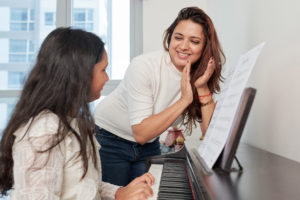
A fun piano practice game that you can try at home with a young piano student is Toy is Watching. Have the student choose a favorite stuffed animal or toy. Decide on something the student can work on, such as piano posture. As the student plays a song they’re learning, sit nearby with the toy. So long as the piano player is using good piano posture, have the toy watch them, nodding in time or even singing along. If they do something that isn’t on the piano posture checklist, for example if they don’t play with curved fingers, or if they slouch instead of sitting up straight, the toy will turn away and look the other direction.
For older students:
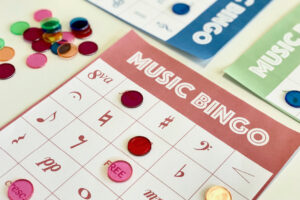
As students begin to learn more about music theory they can use flashcards and games to help practice vocabulary, note names, and other music facts. Try some of these music learning games and materials from the Hoffman Academy Store:
Pineapple Musical Matching Game
For advanced students and adults:
Here’s an engaging game to play that will help you learn a challenging passage of music. Choose a few measures to work on. Set your metronome to a very slow tempo. If you play the measures at that tempo without making any mistakes, advance the metronome by five beats per minute. If you do make a mistake, slow down by one beat per minute. Choose a target tempo and keep practicing until you reach it.
Use games to enhance your piano learning
We hope this article has given you some good ideas for how to start using games as part of your piano learning. For more piano game ideas, check out these 12 Great Piano Games for Kids.
